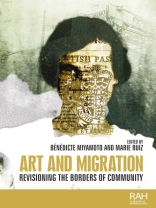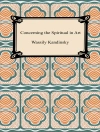This collection
offers a response to the view that migration disrupts national heritage. Investigating the mediation provided by migrant art, it asks how we can rethink art history in a way that uproots its reliance on space and place as stable definitions of style. Beginning with an invaluable overview of migration studies terminology and concepts,
Art and migration opens dialogues between academics of art history and migrations studies through a series of essays and interviews. It also re-evaluates the cultural understanding of borders and revisits the contours of the art world – a supposedly globalised community re-assessed here as structurally bordered by art market dynamics, career constraints, gatekeeping and patronage networks.
Tabela de Conteúdo
1 Revisioning art and migration – Bénédicte Miyamoto and Marie Ruiz
Part I: Art, migration and borders 2 Empathy, migration and art: an interview with Dieter Roesltraete 3 Silenced migrants: an interview with David Antonio Cruz 4 Memorable mobilities: an interview with Axel Karlsson Rixon 5 Ambiguous attachments: creations of diasporic aesthetics and migratory imagery in Chinese-Australian Art – Birgit Mersmann 6 Retracing colonial choreographies in contemporary Native American art – Christopher Green 7 Race, migration and visual culture: the activist artist challenging the ever-present colonial imagination – Claudia Tazreiter 8 Precarious temporalities: gender, migration and refugee arts – Rachel A. Lewis
Part II : The migrants’ paths in the arts 9 Global and translocal: an interview with Marina Galvani 10 Portrait of the artist as migrant: an interview with Robyn Asleson 11
Stories of Global Displacement: an interview with Massimiliano Gioni 12 A publication of one’s own: identity and community among migrant Latin American artist in New York
c. 1970 – Aimé Iglesias Lukin 13 ‘Nobody’s darlings’? Edith May Fry and Australian expatriate art in the 1920s – Victoria Souliman 14 Agostina Segatori and the immigrant Italian models of Paris – Susan Waller 15 Gardens, migrations and memories: aesthetic and intercultural learning and the (re)construction of identity – David Bell
Part III: Mapping the researcher’s identity 16 Photographing migrants and positionality: an interview with Leslie Ureña 17 Reflections on positionality – Bénédicte Miyamoto and Marie Ruiz Index
Sobre o autor
Amelia Jones is Robert A. Day Professor of Art and Design and Vice Dean of Critical Studies at the Roski School of Art and Design, University of Southern California












